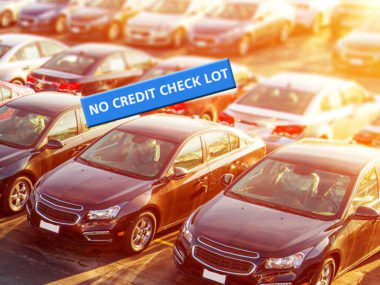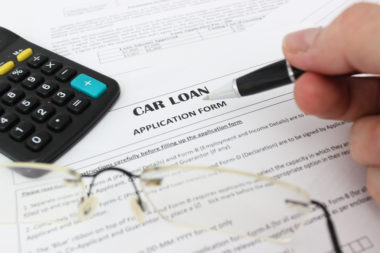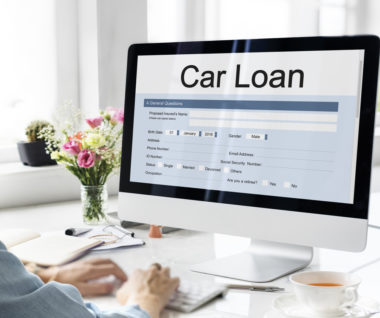Purchasing a car can be an overwhelming process. However, if you take your time, do your research, and ask the right questions, you can calmly and cooly locate the perfect vehicle for your particular needs.
Below are two lists of questions. The first set is for you to ask yourself before you go out shopping. The second is for you to ask the car dealer in order to fully understand all of the important details about the car you’re interested in purchasing.
Table of Contents
Questions to Ask Yourself
Below are eight questions that you should ask yourself in order to go into the car buying experience fully equipped with the right knowledge.
What Type of Car Fits Your Needs?
The first question that you should ask is what kind of car fits your needs. Do you have children that need a car seat? Are you commuting long distances each day? Do you need a car that can take a beating or run smoothly in cold weather? These factors can significantly impact the kind of car you choose.
What Do You Want to Do With Your Old Car?
If you have an old car, what do you plan on doing with it? Will you trade it in? Sell it to a private party? Is it a lease that is about to end? Make sure that you have a plan in place in order to avoid paying for two cars’ worth of payments and insurance.
What Can You Afford?
It’s absolutely critical that you create a car budget and calculate how much you can afford to spend. Most of the time it’s suggested that you keep your car loan payment below 10% of your net take-home pay. In addition, your total car-related expenses (think insurance, sales tax, fuel) should stay below 20%.
Do You Really Need a New Car?
If you’re trying to be fiscally responsible, it’s important to only get a new car when it makes sound financial sense. Why are you buying a new car right now? Do you need to take on the costs and responsibilities that come with a new car at the moment?
Should You Buy or Lease?
Buying and leasing are two viable options for you to consider, with several pros and cons. Buying is often more expensive up front, but leaves you with ownership of the vehicle. Leasing is more affordable in the short term but it typically requires a higher credit score and you have to return the car when the lease is up.
How Much Does Technology Matter?
Technology is another consideration. Do you need Bluetooth capabilities? What about automatic doors? Are you feeling especially lavish and you want to look for cutting-edge driverless technology? Remember, all of these will cost more money. If your budget is tight, you may want to look for those good old-fashioned hand-crank windows and aux cables for your smartphone music instead.
Can You Keep Up With the Maintenance of the Vehicle?
It’s important to understand what is required to take care of your vehicle. Oil changes and tire rotations are obvious, but there are other considerations. If you opt for an electric vehicle you need to make sure you have the ability to charge it. If you get a nicer model car, replacement parts may be more expensive. Always consider long-term maintenance before choosing your car.
How Much Will the Insurance Be?
It’s important to keep car insurance in mind. Factors like your driving record and the overall value of the vehicle can impact the cost of your policy and should be weighed along with all of your other financial considerations. Make sure to take the time to gather some car insurance quotes before signing off on a new car.
Questions to Ask a Car Dealer
Once you’ve asked yourself the above questions, you’re ready to hit the car lots. As you shop, it’s important to be ready to ask the right questions in order to fully understand the price, condition, and other details about each car that you’re interested in. You can seek most of this information out by asking the car dealer or salesman the following questions:
Do They Have a Car That Fits Your Needs?
Rather than hunting around the lot, go directly to the car dealer and tell them specifically what you’re looking for. If they have a car that fits your needs, take a look. If not, you don’t have to waste your time on alternative options and you can move right along to the next dealer.
Does the Vehicle You’re Looking at Have 4-Wheel Drive That Works?
Just because you read that a car has a certain feature doesn’t mean that it actually works. If you see a unique perk, such as 4-wheel drive, make sure to ask if it still functions and how well. You can expect a sugar-coated answer, but it will still give you a rough idea of the condition of the vehicle.
What Does the Warranty Cover?
Just because a car is still under warranty doesn’t mean all of your problems will be magically resolved. Always take the time to ask the dealer to explain what the warranty covers. Go over it step by step and make sure that you understand what parts will be your responsibility to repair.
What Are Common Repairs That the Vehicle Needs?
Often individual models and years of vehicles can have more consistent flaws. Sometimes these are minor and at other times they can be debilitating. Always ask the dealer if the particular kind of car you’re looking at has any common repairs.
Are There Any Additional Fees?
Hidden fees are a classic car-buying bogeyman. You can always expect things like sales tax and dealer documentation to be tacked onto the sale, but always ask if there are any more additional fees that might be added onto that alluringly cheap sticker price.
What Is the Gas Mileage?
Even if you find a cheap vehicle, if it has low gas mileage it’s going to cost you an arm and a leg in the long run. Never hesitate to ask what the gas mileage is. If possible, you may also want to check if the vehicle tracks its mileage information on the dashboard in order to confirm the dealer’s answer.
Were There Any Previous Owners?
Previous owners can introduce a slew of different concerns. From rough treatment to the interior to riding the breaks and wearing out tires, it’s important to know if the vehicle had a previous owner and if anything happened to it while they were in possession of the car.
Was This Vehicle Involved in Any Collisions/Wrecks?
Along with rough wear and tear, if the vehicle has had a previous owner — including a rental agency — it’s important to ask if it’s been in any accidents. If so, ask for a clear report about the accident. If the dealer cannot provide this information, it’s best to move on and look for another option.
What Other Amenities Does the Vehicle Come With?
As you shop, you’ll likely be focused on things like mileage, fuel efficiency, capacity, and price. However, it’s also worth asking if the car has any hidden amenities. Things like GPS features or brake assist are worth being aware of if you end up owning the car.
What Features Don’t Work the Way They’re Supposed to?
Along with understanding the car’s amenities, it’s also important to ask which of those features are malfunctioning. It’s best to specifically ask which features “don’t work the way they’re supposed to,” as it may unearth sketchy behavior, such as a weak AC system, that may not officially be malfunctioning quite yet.
Do You Have a Clear Title in Hand?
Does the dealer have the title to the car in their possession? Is the title clear and free of any liens or other ownership? This is an essential step that must get a green light before any sale is made.
Are There Any Aftermarket Products on the Car?
Often, previous owners add features to cars after the sale. For instance, a previous owner may have added a new stereo and sound system. Remember to request any information on aftermarket products of this nature to better understand the precise value and capabilities of what you’re purchasing.
How Is the Tread on the Tires?
Tires are a quietly expensive part of a vehicle. It’s always worth asking the dealer about the tread on the tires. Unless it’s a new car, they’ll likely have some amount of wear, but if it’s significant, you may be able to get a new set of tires thrown into the deal.
What Will You Give Me if I Trade in My Car?
Finally, ask the dealer if they’ll sweeten the deal if you trade your car in as part of the purchase. It’s important to be aware of the value of your trade-in before you head to the dealer in order to negotiate and, hopefully, get a little bit of a discount off of your new car’s final price.
It can be time consuming, but if you patiently ask these questions as you shop, you’ll be able to ensure that your next vehicle is the best one to meet your particular needs in as affordable a manner as possible.
Image Source: https://depositphotos.com/





